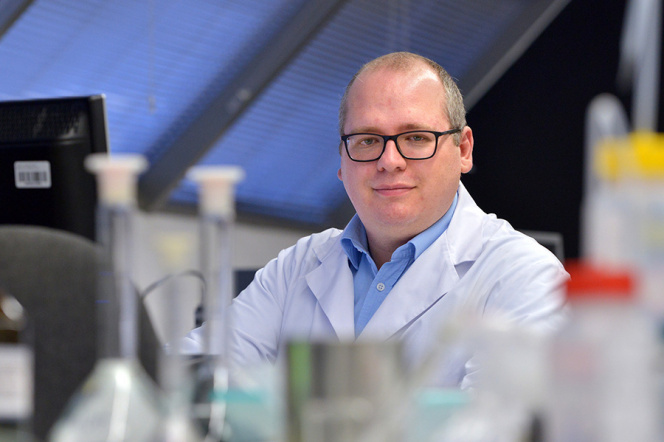Date added: 2021-05-31
Intelligent material for medical sensors shall be created

PhD, DSc, Eng. Jacek Ryl, university professor from the Institute of Nanotechnology and Materials Science FAP&M (previously he worked at the Faculty of Chemistry) received nearly PLN 2 million from the National Science Center in the SONATA BIS 10 competition for the implementation of the project entitled ‘Technology for additive production of electroactive spatial structures from diamond-reinforced polylactide composites’.
The aim of the research is to develop a new carbon composite material that can be used in electrochemistry for the construction - by means of 3D printing - of electrode arrays and flow cells used as simple electrochemical sensors of various organic compounds (in the first place these will be substances used as anti-inflammatory drugs, antibiotics and neurotransmitters).
– As the first scientists in the world, we want to add boron-doped diamond nanoparticles to the composite that we are building as an electroactive compound, thus extending the range of applications of this one of the best electrode materials in sensor technology - says Prof. Jacek Ryl, project manager.
According to the scientist, the new class of material, thanks to which it will be possible to produce sensors and transmitters of complex shapes, will be non-toxic (biocompatible) and biodegradable, which will allow for easy disposal, especially important e.g. in one-off medical diagnostics. The cost of its production is also to be lower than, for example, electrodes made of gold or solely of diamond.
The material that will be created will also have the features of an intelligent 4D material, i.e. one whose properties or shape can be modified by changing the environmental conditions accordingly.
– Our composite material will modify its properties in a certain way - in this case, its shape and electrical properties. We will be doing research into whether it will degrade, e.g. with a specific external stimulus, or as a result of material aging - explains Prof. Ryl.
According to the assumptions of the project, it would allow, among others using the material for the controlled release of drugs, e.g. directly in the patient's body.



